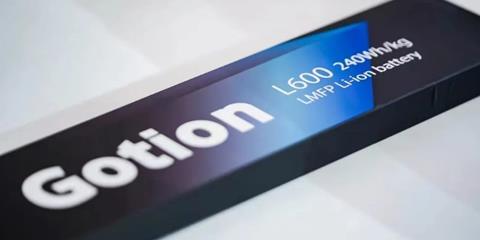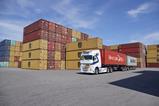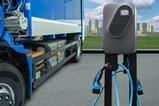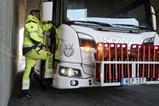Gotion High-Tech, a leading Chinese battery cell manufacturer, has unveiled a groundbreaking battery cell that could have a transformative impact on the electric truck industry.

The new battery cell, based on lithium manganese iron phosphate (LMFP), is specifically designed to help electric vehicles achieve an impressive range of 1,000 kilometers, according to Chinese standards. This development has caught the attention of industry observers worldwide, particularly Volkswagen, which became the largest single shareholder in Gotion High-Tech at the end of 2021.
Gotion’s LMFP cell, known as Astroinno L600, represents a significant departure from the traditional nickel-cobalt-manganese (NCM) chemistry, renowned for its higher energy density. By eliminating NCM, Gotion aims to pave the way for electric vehicles to achieve extended ranges without compromising performance. The mass production of Astroinno L600 is scheduled to commence in 2024.
In terms of performance, the LMFP cell boasts an impressive gravimetric energy density of 240 Wh/kg and a volumetric energy density of 525 Wh/L. When assembled into the Astroinno battery pack, the overall energy density reaches 190 Wh/kg. Gotion claimsthe new cells have a service life of over 4,000 cycles at room temperature and 1,800 cycles at high temperature, showcasing their durability and longevity.
The key innovation lies in the cathode of the LMFP cell, which replaces the traditional lithium iron phosphate with lithium manganese iron phosphate. This modification significantly enhances the energy density and fast-charging capability of the battery. Gotion has not disclosed the specific state of charge (SoC) range or charging power, but it states a fast-charging time of 18 minutes. The battery pack features a double-sided liquid cooling sandwich design and a minimalist approach that reduces the number of structural parts by 45 percent and lowers their weight by 32 percent.
It is important to note that LMFP has garnered interest not only from Chinese suppliers but also from German companies. IBU-Tec Advanced Materials aims to expand its portfolio of LFP battery materials by introducing a variant with added manganese. Similarly, a consortium led by Varta and the Centre for Solar Energy and Hydrogen Research Baden-Württemberg (ZSW) is actively working on LMFP cells for electric aviation.
In a separate approach, other manufacturers, such as CATL, are exploring cell-to-pack technology to achieve higher energy densities at the pack level. CATL’s third-generation CtP technology, for instance, aims to enable energy densities of 160 Wh/kg for LFP cells.
Although initially developed for car applications, the introduction of Gotion’s LMFP battery cell holds immense potential to transform the electric truck industry by delivering substantially increased range capabilities. Combined with megawatt charging to offer high-speed refueling, this could be the significant breakthrough the Battery electric truck requires for it to be universally deployed across the industry.


















